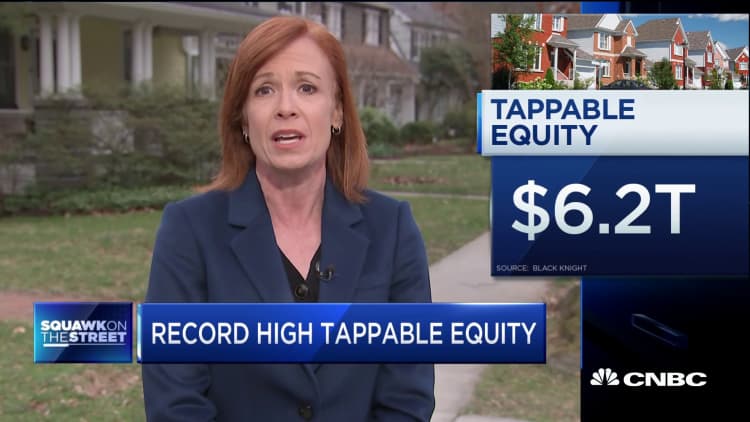
The average rate on the 30-year fixed mortgage fell to a record low of 3.29%, Freddie Mac reported this week.
That's down from the previous low of 3.31% in November 2012, in the wake of the financial crisis. Fears of the coronavirus hitting financial markets have pushed bond yields down, yields which mortgage rates general track.
That drop means that now nearly 13 million borrowers can save money by refinancing their home loans and lowering their current rates by at least 75 basis points, according to Black Knight, a mortgage data and analytics company.
That is the highest number of potential refinance candidates on record. It is also an increase of 1.7 million eligible borrowers in just the last week and a 60% jump year to date.
The average borrower can save about $277 per month on a 30-year fixed loan. If all those borrowers did it, that would be a collective $3.5 billion a month in payments.
The 75 basis points measure is just an average and can move in either direction for savings, depending on the borrower's individual situation. Factors include the size of the loan's outstanding balance, the lender's upfront refinance fees, the amount of time the borrower plans to stay in the home and whether or not the borrower might be consolidating other high-interest rate debt through the refinance.
If rates dropped just 4 basis points more from here, another 1.7 million borrowers would fall into that pool of potential savings.
While most borrowers are doing straight refinances to lower rates, some are doing cash-out refinances. Homeowners today have a record amount of tappable equity in their homes, that is, equity above the 20% threshold of equity lenders will require to remain in the home. About 45 million borrowers have tappable equity, representing $6.2 trillion collectively at the end of last year.
Phones are ringing off the hook at lenders like Quicken, which had a couple of record volume days this week, according to the company's CEO. While mortgage rates now hover around record lows, they are seeing some pushback to go much lower. That is because lenders are so overwhelmed by the volume, they are simply too busy to lower rates. The spread between mortgage rates and the 10-year Treasury is therefore widening.


